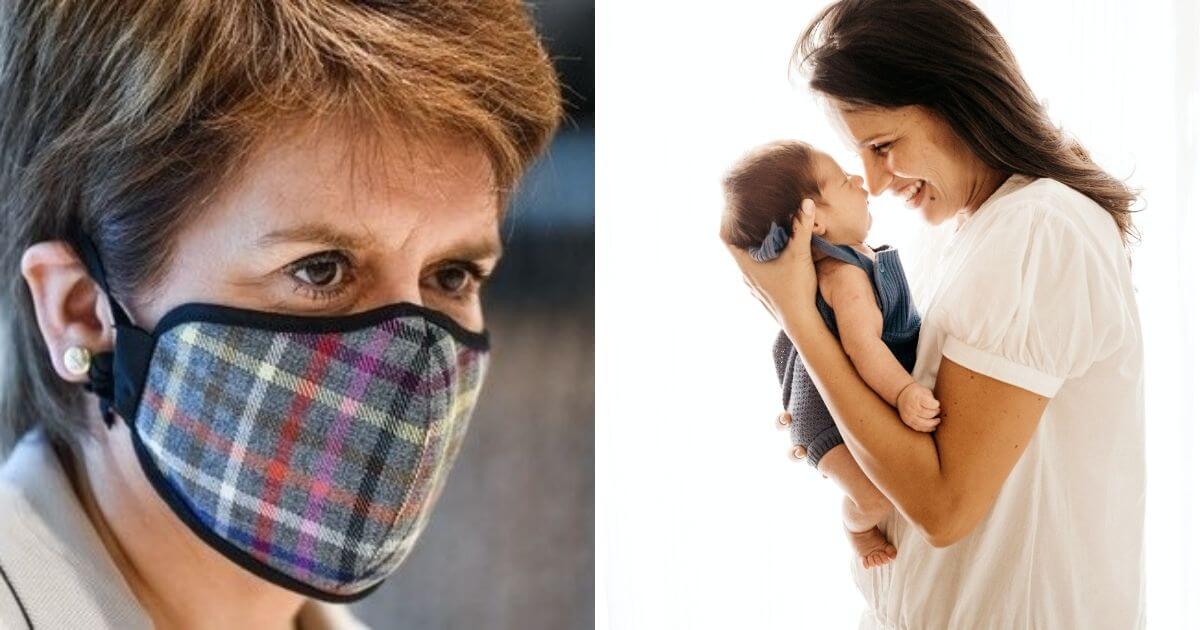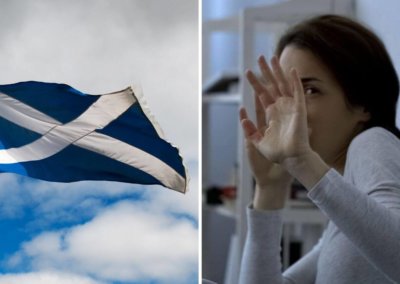The Scottish First Minister is committed to introducing censorship zones outside abortion clinics and hospitals providing abortions in Scotland after hosting a summit to ‘discuss’ censorship zones where only those who support making it a criminal offence to offer support to women outside abortion clinics were invited.
The First Minister, Nicola Sturgeon, has said that legislation will be passed to make it illegal to offer help and alternatives to abortion outside abortion clinics and hospitals providing abortions in Scotland.
Sturgeon has given her backing to a member’s Bill, introduced by Green MSP Gillian Mackay, which intends to introduce censorship zones in Scotland. If the Bill becomes law, potential jail sentences of up to two years would be introduced for people who attempt to influence or persuade someone seeking an abortion within 150m of abortion clinics and hospitals offering abortion.
However, it appears that while the First Minister invited councils, charities, police, health professionals and campaigners to her summit on abortion, groups that offer alternatives to abortion and/or pray outside abortion clinics were not invited.
A campaign, launched to oppose the introduction of censorship zones outside hospitals proving abortions in Scotland, has released data from Police Scotland that shows that there is no evidence of harassment or intimidation at thirteen different locations performing abortions between 2016 and 2021. The group, Compassion Scotland, was apparently not invited to the summit.
Opposition to censorship zones
At the same time, Sturgeon is facing opposition to this from her own party.
MSP John Mason said he was “not convinced” the issue was a problem. He said that the protests he had seen were not intimidating and that people did not have to go near them.
“We have to listen to people’s experience but there’s two types of experience – people who say they are feeling harassed and intimidated, and people who say they are being coerced into abortions and are not being given the pros and cons”, he said.
A spokesperson for the legal advocacy group ADF UK, Lois McLatchie, told the BBC: “Buffer zones ban legitimate offers of help and silent prayer and mean women may not be able to access those other options – practical help or financial help”.
“Women have the right to hear about these options at the point of need and it is patronising of the government saying women don’t want to hear this”.
Censorship zones in England and Wales
Following a review into the nature and extent of the activity outside abortion clinics across the country, Sajid Javid announced that the Home Office could not find adequate reason to introduce censorship zones.
He said: “…introducing national buffer zones would not be a proportionate response, considering the experiences of the majority of hospitals and clinics, and considering that the majority of activities are more passive in nature. In making my decision, I am also aware that legislation already exists to restrict protest activities that cause harm to others”.
Opposition to censorship zones extends beyond pro-life advocates to unite a large part of society who may not agree with the pro-life position on abortion but opposes censorship zones as a threat to freedom of speech.
Despite supporting abortion, a number of prominent human rights groups and campaigners have spoken out against the introduction of censorship zones. This includes Peter Tatchell, the Manifesto Club, Big Brother Watch, Index on Censorship and the Freedom Association.
The Be Here for Me website highlights just a few of the many stories of women who have been helped by people outside abortion clinics, and the stories of women who could miss out on such support in the future.
Right To Life UK spokesperson, Catherine Robinson, said: “Advocates of censorship zones frequently make claims about intimidation outside abortion clinics. Insofar as this happens, it should not and there are laws already in place to prevent intimidation and harassment. However, evidence of intimidation and harassment is distinctly lacking. The Freedom Of Information requests to Police Scotland revealed no evidence of harassment or intimidation at thirteen different locations performing abortions between 2016 and 2021.”












